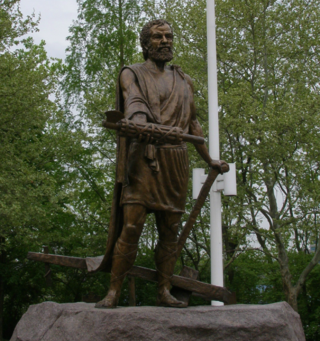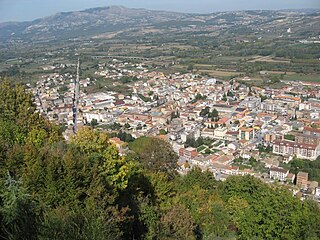Related Research Articles
Year 497 BC was a year of the pre-Julian Roman calendar. At the time, it was known as the Year of the Consulship of Atratinus and Augurinus. The denomination 497 BC for this year has been used since the early medieval period, when the Anno Domini calendar era became the prevalent method in Europe for naming years.
Year 492 BC was a year of the pre-Julian Roman calendar. At the time, it was known as the Year of the Consulship of Macerinus and Augurinus. The denomination 492 BC for this year has been used since the early medieval period, when the Anno Domini calendar era became the prevalent method in Europe for naming years.
Year 451 BC was a year of the pre-Julian Roman calendar. At the time, it was known as the Year of the Consulship of Sabinus and Augurinus and the First year of the decemviri. The denomination 451 BC for this year has been used since the early medieval period, when the Anno Domini calendar era became the prevalent method in Europe, for naming years.

The year 305 BC was a year of the pre-Julian Roman calendar. At the time, it was known as the Year of the Consulship of Megellus and Augurinus. The denomination 305 BC for this year has been used since the early medieval period, when the Anno Domini calendar era became the prevalent method in Europe for naming years.

Lucius Quinctius Cincinnatus was a Roman patrician, statesman, and military leader of the early Roman Republic who became a famous model of Roman virtue—particularly civic virtue—by the time of the late Republic.
Gaius Nautius Rutilus was a Roman politician who was consul of the Roman Republic from 475 BC until 474 BC and from 458 BC until 457 BC.

Lucius Minucius Esquilinus Augurinus was a Roman politician who was consul in 458 BC and decemvir in 450 BC.

The Battle of Bovianum was fought in 305 BC between the Romans and the Samnites.

The gens Minucia was an ancient Roman family, which flourished from the earliest days of the Republic until imperial times. The gens was apparently of patrician origin, but was better known by its plebeian branches. The first of the Minucii to hold the consulship was Marcus Minucius Augurinus, elected consul in 497 BC.
Spurius Larcius was one of the leading men of the early Roman Republic, of which he was twice consul. However, his greatest fame was won as one of the defenders of the Sublician bridge against the army of Lars Porsena, the King of Clusium.
Marcus Minucius Augurinus was a Roman Republican politician of the patrician gens Minucia during the beginning of the 5th century BC. He served as Consul of Rome in 497 BC and 491 BC, both times serving together with Aulus Sempronius Atratinus.
Publius Minucius Augurinus was a Roman Republican politician of the patrician gens Minucia during the beginning of the 5th century BC. He served as Consul of Rome in 492 BC
Titus Geganius Macerinus was a Roman politician who served as Consul in 492 BC with Publius Minucius Augurinus.
The gens Genucia was a prominent family of the Roman Republic. It was probably of patrician origin, but most of the Genucii appearing in history were plebeian. The first of the Genucii to hold the consulship was Titus Genucius Augurinus in 451 BC.
The gens Mustia was a minor plebeian family at Rome. Members of this gens are first mentioned in the final decades of the Republic, and at least some were of equestrian rank. However, few of the family are recorded outside of inscriptions.
Marcus Genucius Augurinus L. f. L. n., brother of Titus Genucius Augurinus, was a statesman of the Genucia gens of ancient Rome who lived in the 5th century BCE.
The gens Seria was a minor plebeian family at ancient Rome. Members of this gens rose to prominence during the second century, attaining the consulship twice, and holding various other offices under the Nerva-Antonine dynasty.
Marcus Minucius Augurinus was a statesman of the Minucia gens of ancient Rome who lived in the 3rd century BC. He was tribune of the plebs in 216 BC, and introduced the bill for the creation of the triumviri mensarii, ancient Roman bankers.
Gaius Minucius Augurinus was a statesman of the Augurinus family of the Minucia gens of ancient Rome who lived in the 2nd century BC.
Sentius Augurinus was a Latin poet of ancient Rome who lived in the time of Pliny the Younger, that is, the 1st century CE.
References
- ↑ Livy, Ab Urbe Condita Libri 40.35, 37